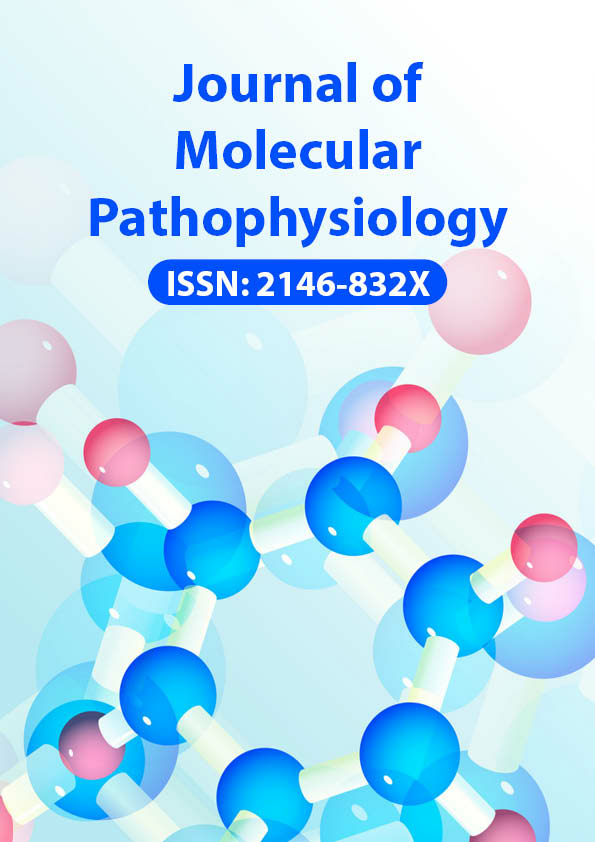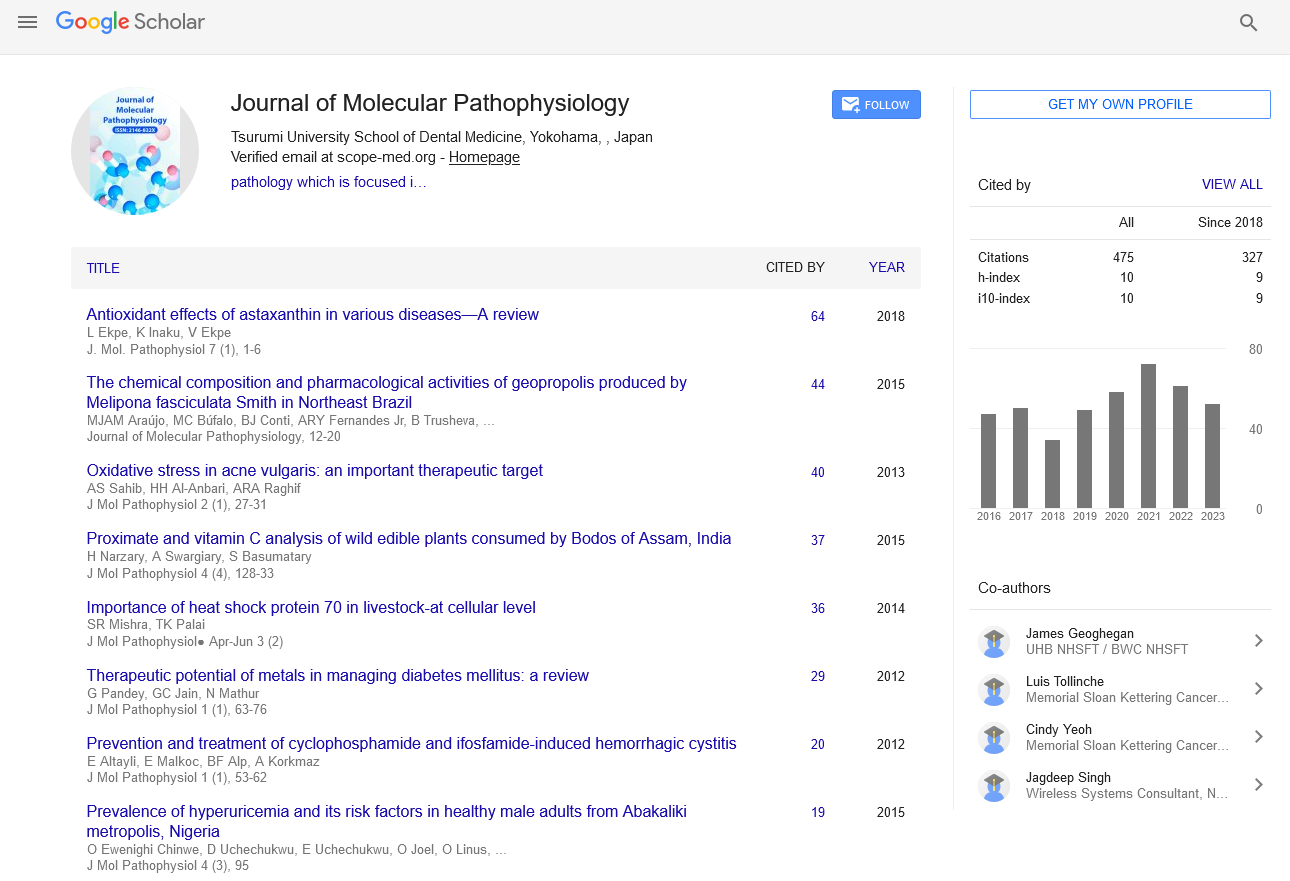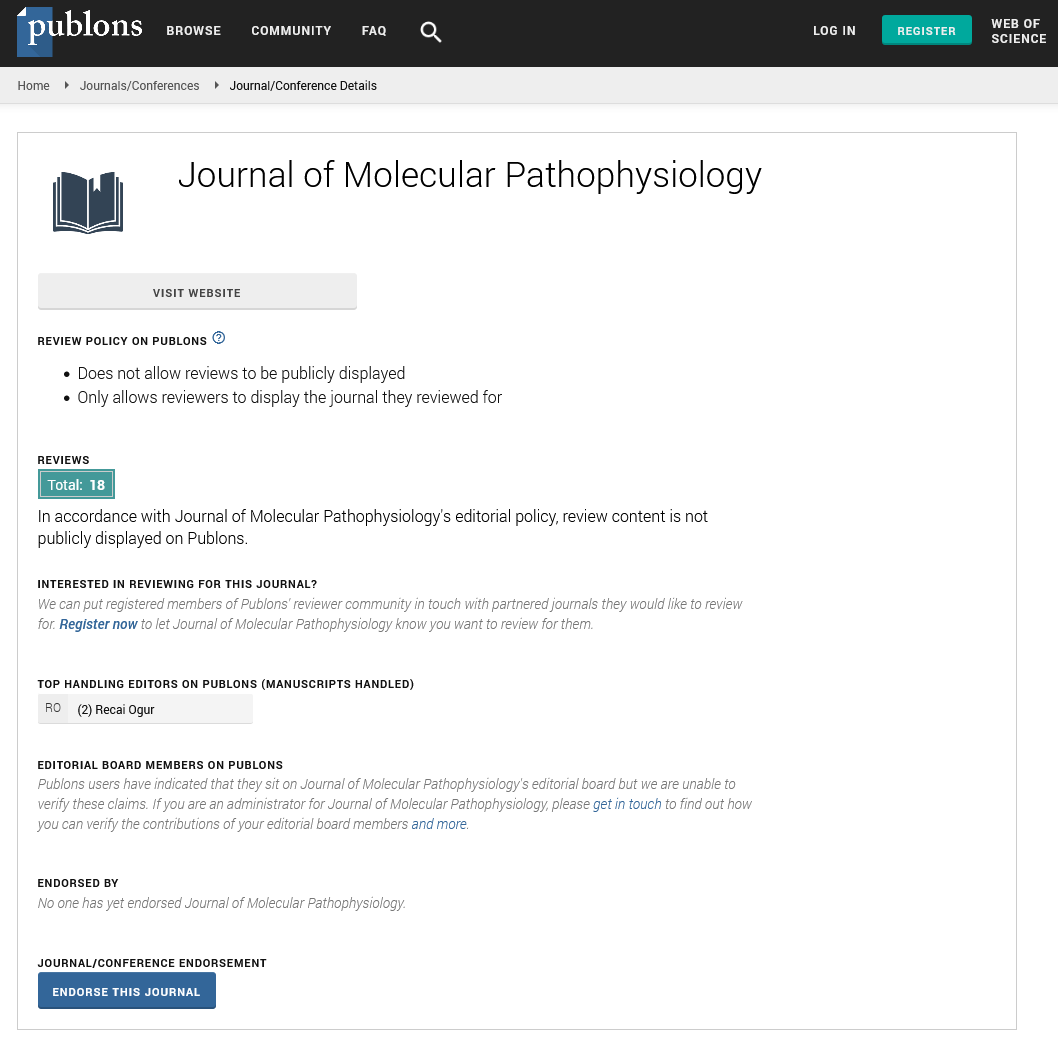Clinical Signifiance of Follistatin in Obese and Non-obese Egyptian Polycystic Ovarian Patients
Abstract
Mostafa El-Shafey, Maghawry Hegazy, Mohammed El-Zahabi, Mohammed Farahat
Objective: Polycystic ovarian syndrome (PCOS) is one of the most common endocrine disorders in women, characterized by hyperandrogenism, infertility, chronic oligo or an ovulation and obesity. In this present study we investigate the level of follistatin in obese and non-obese women with PCOS and define any correlation between follistatin and hormonal parameters. Methods: The study group included 23 obese and 17 non-obese PCOS patients. The control group included 18 obese and 22 non-obese subjects. Blood samples were obtained from the patients on day 2–5 of menstrual cycle and were assayed for Leutinizing hormone (LH), follicle stimulating hormone (FSH), total testosterone, follistatin, prolactin, sex hormone binding globulin (SHBG) and fasting insulin using enzyme-linked immunosorbent assays (ELISA), fasting glucose was measured spectrophotometry. Hemostasis model assessment - insulin resistance (HOMA-IR), free androgen index (FAI), LH/FSH ratio were calculated. Results: Follistatin concentrations were significantly higher in obese and non-obese PCOS patients (mean ± SE; 1207 ± 37.99 and 1106 ± 30.8 pg /ml respectively) than their respective controls (721.9 ± 23.44 and 653.3± 25.88pg./ml, P < 0.0001 respectively) and there was weak significant difference between obese and non-obese control P < 0.042 and weak significant difference between obese and non-obese PCOS P < 0.022 . Stepwise regression analyses for relationships between follistatin and all other variables in obese PCOS group indicated that follistatin was negatively affected by FSH (P < 0.09), and positively affected by insulin and HOMA-IR (P < 0.009) in non-obese PCOS group. Conclusions: Serum follistatin is increased in PCOS patients compared to control subjects and there is weak significant increase in obese subjects. PCOS is the most significant variable relates to high follistatin serum concentration. Follistatin correlated negatively with FSH and a high follistatin levels may contribute to the pathophysiology of PCOS.
PDF






